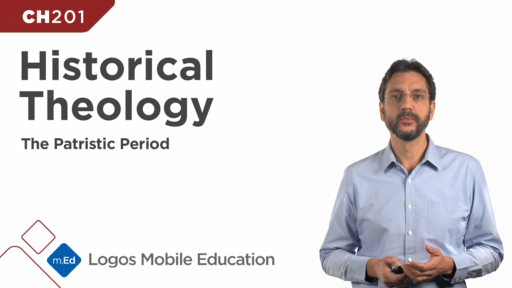CH201 Historical Theology: The Patristic Period
Sign in to rateIn Historical Theology: The Patristic Period (CH201) Dr. George Kalantzis provides an in-depth study of the theological developments of the early church during the patristic era. Beginning with the world of early Christianity, you will grasp the major historical events, the philosophical ideas, and the pagan religions that shaped the world into which the New Testament church was born. The course covers topics such as persecution and martyrdom, apologetics, Gnosticism, ecclesiology, Christology, and the Trinity in the context of the Roman Empire. Lastly, you will learn what religious, historical, and political influences gave rise to the ecumenical councils that produced the foundational summaries of the Christian faith.
